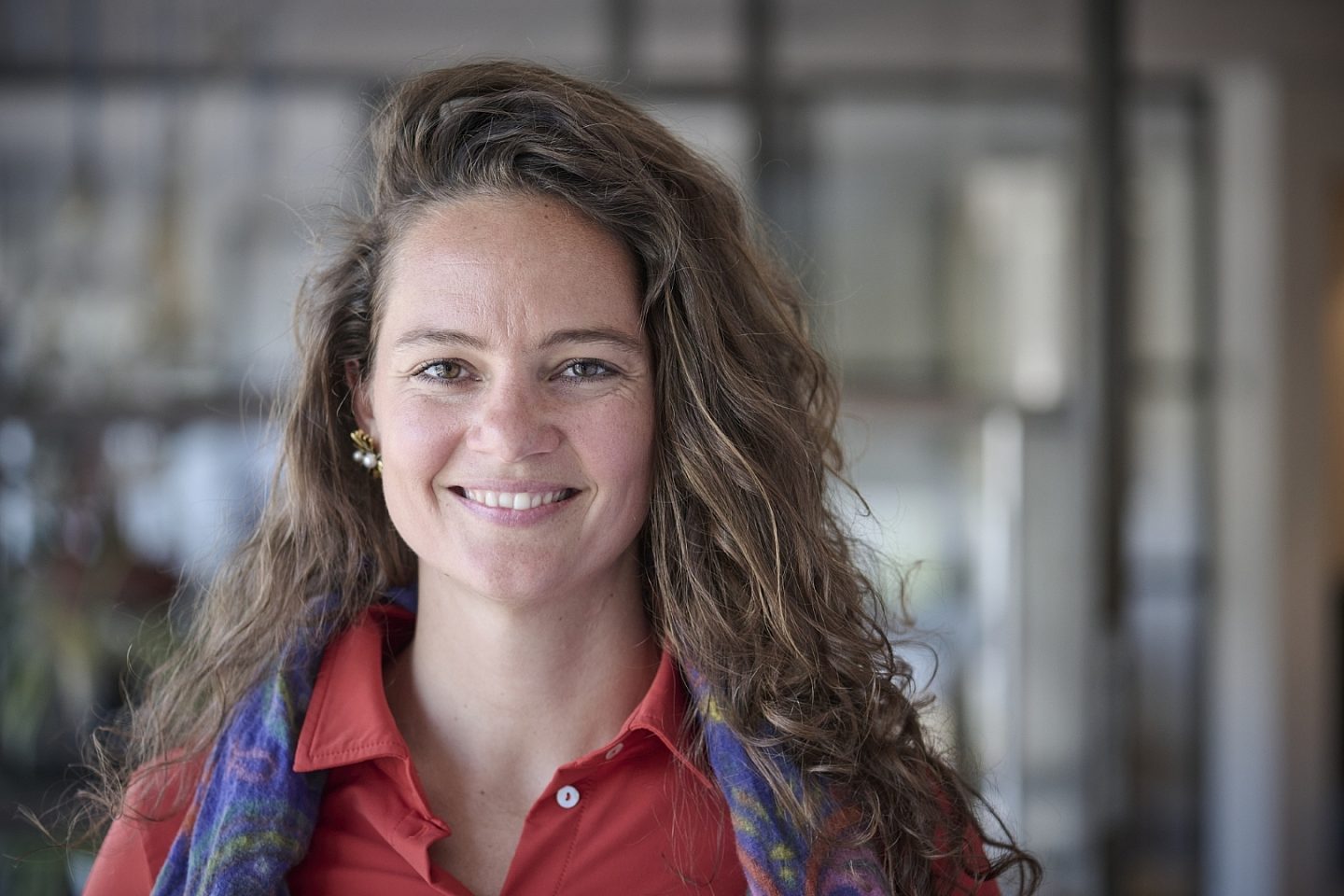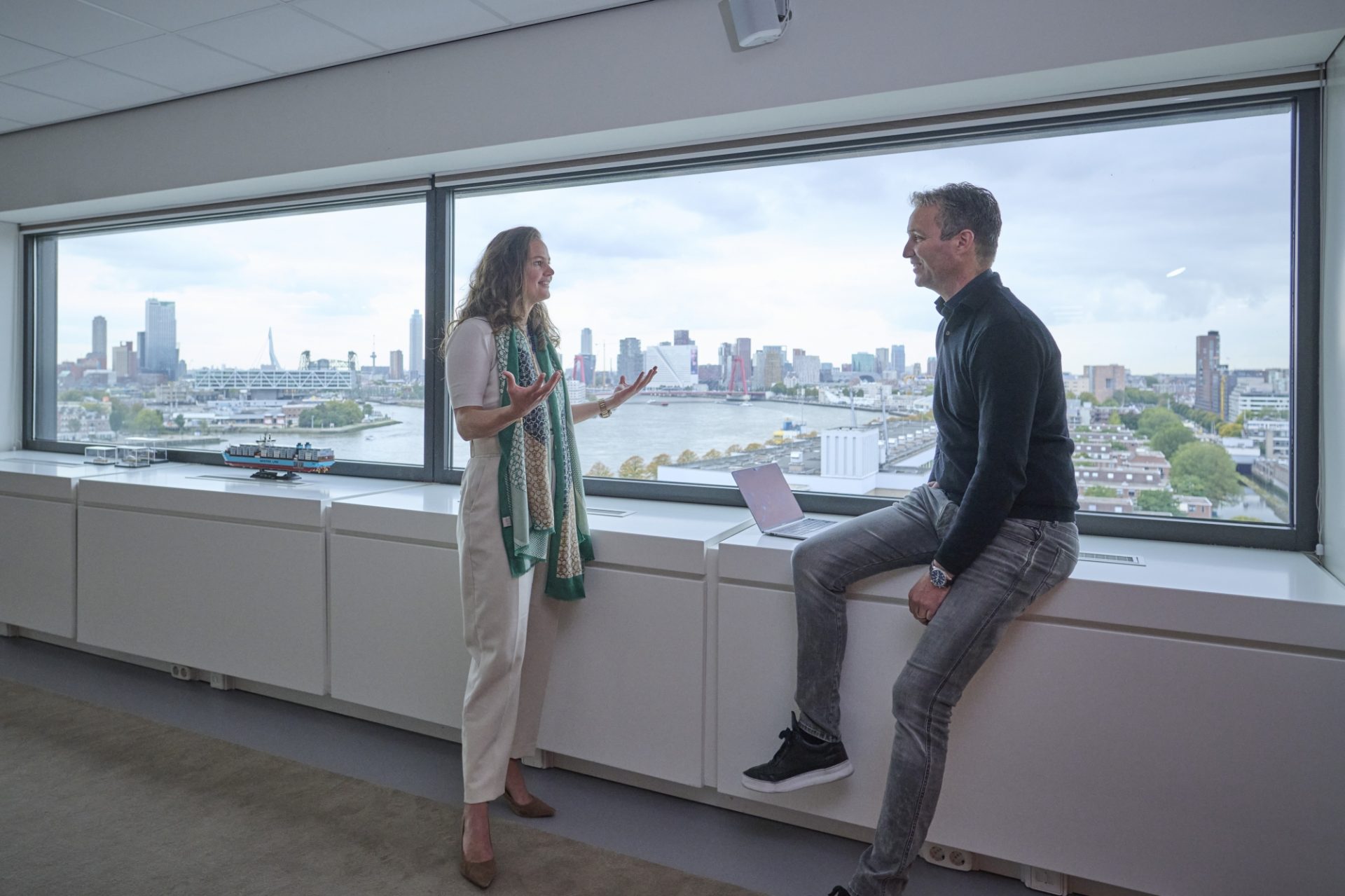Working life
What does your role as a COM entail?
That’s maybe the most difficult role to describe within Schuberg Philis. In Dutch, they would say the sheep with five legs. The internal title is a Customer Operations Manager, or COM, and externally we call it a Customer Director. Along with both the Customer Sales Director and the tech lead of the team, you’re the account team for one particular customer. You make sure that your team reaches that 100% customer satisfaction objective. You’re also responsible for recruitment within the team, making sure we look toward the future, that the people in the team are happy where they are or if they want to move on. So you’re kind of this spider in the web of everything revolving around a particular customer team. But each COM will approach the role uniquely. I am a COM without a technical background. But then there are COMs that are very technically oriented; there are COMs that are very sales-focused. So there can be a really different interpretation of the role, but the bottom-line responsibilities remain the same.
What about your background prepared you for the role?
Different things. I was born and raised in Curaçao and then moved to the Netherlands when I was 17 to go to university. My study was very broad, international business administration. In my final year, I started working for a bank and insurer as a business controller. Throughout positions I had within that company and later elsewhere, I did projects with some connection to IT and business. And I came to recognize that my strength lies in bringing different people together and, in that way, offering the best solutions for all parties. That was prepping me for what I’m doing for Schuberg Philis right now.
What’s a typical day like?
The customer I work for operates in a heavily regulated environment, and they have a relatively formal meeting structure. So every week I’ll be in an operational meeting with them, making sure things are OK in terms of open tickets or projects that are running. Then every month, we have this tactical meeting with their different levels of management, talking about, on a higher level, where do we see this customer developing. Twice a year, we’ll have a strategic meeting about how we see our contract developing over time. My customer is international, so occasional visits to the head office in Paris are also part of it. Another part of my day goes to doing interviews for potential new colleagues. These are mostly the first and the third interviews, whereby we explore if applicants are the right cultural fit and then have one more in-depth conversation before making an offer.
How do you help ensure your team’s happiness?
I think people need to be heard. We are all responsible for supporting each other, but if I know people are trying to speak up and not being heard, or if the advised consent model that we use within Schuberg Philis is failing for some reason, I want to step up and make sure we address it. This is also to make sure that people are feeling valued in the position that they’re in. So I ask if my team members are doing what they can with their skills, or do they want to move to another project? If so, then let’s make that happen. It’s a matter of making sure that people are using their talents and are happy with the phase of the job they’re in. Ultimately, everybody is in charge of their own destiny. But I do see it as my role to keep that conversation going for the benefit of the whole team, for Schuberg Philis, and for the person themselves.
Company culture
Enabling colleagues to feel validated through and at their work is a company cultural value. How have you experienced this?
As a company, we have ideas revolving around our slogan “It’s the people, actually.” So how do we do that in a sustainable way that fits with our philosophy? Within Schuberg Philis, I’m also part of something called the Sustainability Circle. Alongside topics such as green and gray energy and our carbon footprint, people and inclusiveness is a very big pillar. We’re always looking at what else we can do to improve that. And we’re also engaging in a lot of talks, presenting at conventions, getting more out there as a company to show that we’re a place where women and other underrepresented groups in the tech industry can work as well. I’m always happy when we can get in a more diverse group of people and make sure that we’re open to being inclusive and aware of unconscious bias.
In what way does the job at this company differ from those in your past?
There have been a couple of things I’ve noticed. The first weeks after I began the job, what really stood out was the passion of the people working here. When I started, I was a little bit insecure, thinking I don’t really have this hardcore IT background; will there be a place for me, or will the gap be too big? So I was really determined to learn as much as possible. Every engineer and non-engineer I asked questions to was happy to tell me about their jobs because they were proud of the work they’re doing and because they’re so knowledgeable. People are really driven to do good work, to talk about that, and to help others be good at it too. Another thing that is different here is the concept that you are responsible for doing what you want. If you want it different, go do it. There’s nobody stopping you. Of course, not everybody will always agree with you, but then you talk about it. That open culture can at first be a little bit disorienting, making you think: “Oh, what’s happening? People have all these opinions. They don’t agree with me.” But at the same time, that’s what makes it so interesting here. You come with an idea and not everybody will agree. But they will not just say: “I don’t agree,” that’s it. They will say: “I don’t agree. But what about this?” The original idea will just become better and better, and in the end, you will have created this new development together. That iteration process is really cool within Schuberg Philis.
Passion project
Outside of Schuberg Philis, you belong to the supervisory boards of two nonprofit organizations. How did you get involved with them?
In between jobs, I volunteered at the Stichting Algemeen Opvangcentrum Purmerend when they needed a business controller for a couple hours a week. For the city of Purmerend, this foundation ensures access to night shelter for people without a roof over their heads as well as others, such as those who have a hard time finding housing, who need social guidance to get back into society, and pregnant teenage girls who have no family. We make sure they get a place to sleep, guidance, and counseling. It was nice to help them out for a couple of months and when I was about to leave because I got a new job, they asked if I would join their supervisory board. So I’ve been doing that for the last four years. And via that foundation, I also ended up in Amsterdam at TEAM ED. “ED” stands for “ervaringsdeskundigen” in Dutch, which refers to this organization’s work with “experience experts” in, for example, mental issues or other difficulties in life. These experts get educated to help other people with the same issues see how they can deal with them, better level their access to opportunities, and get the care they really need. What makes it so effective is that they can talk from their own experience and say: “I know what you’re going through because I’ve been there.”
What’s it like applying business principles in a nonprofit context?
It’s always tricky to keep the right balance because you are advising the board but also making sure they fulfill their societal duty. You shouldn’t go and try to play their role. But I think using all the information and knowledge we have from business is helpful. And getting back to the topic of diversity, bringing together those diverse perspectives can really help improve initiatives like this because a foundation’s priority of knowledge is mostly not on finance or business operational excellence. So that’s something another perspective can really help them get better at.
Curious to know more about how more colleagues spend their days? See the whole series here.




